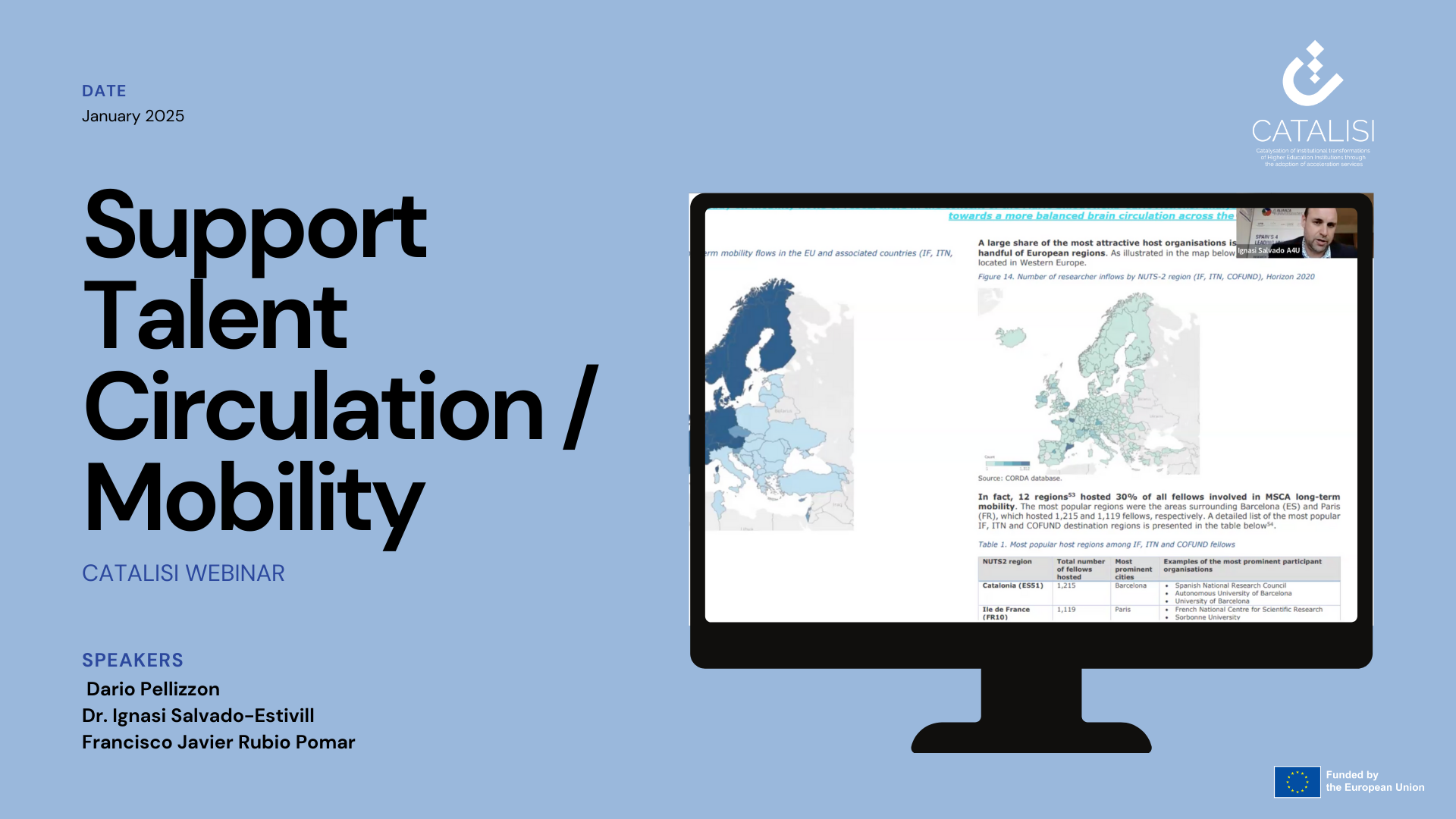Last week, a panel of three distinguished speakers shared insights into the challenges and strategies related to research careers, talent attraction, and retention in Europe. The discussion focused on institutional approaches to supporting researchers at different career stages, with particular attention given to regional initiatives. Below is a summary of the key points presented by each speaker.
First Speaker: Dario Pellizzon, Head of Research & Libraries, Ca' Foscari University of Venice
Dario explored the critical issue of international researcher mobility and the efforts undertaken by Ca’ Foscari University in Venice to attract and retain top research talent. Despite being globally recognised as a tourist destination rather than a research hub, the university has implemented long-term policies to strengthen its position in the international academic landscape.
Europe faces a significant challenge in researcher mobility, with many highly skilled individuals leaving for the United States, as well as countries like Canada, Australia, and Japan. Ca’ Foscari University has embedded talent attraction and retention into its core institutional strategies. To establish itself as a research destination, Ca’ Foscari University has:
- HR Excellence in Research certification: a prestigious recognition from the European Commission that ensures high-quality research conditions and fair treatment of researchers.
- ERC Grants: Since securing its first European Research Council (ERC) Grant in 2010, Ca’ Foscari has seen a steady increase in successful applicants, with 30 ERC grantees currently affiliated with the institution.
- Marie Skłodowska-Curie Fellowships: welcoming over 200 researchers under this programme.
- Increased Research Funding: The success in securing ERC, MSCA, and Horizon Europe grants has led to a sharp rise in external funding. The university’s research income has more than doubled, reaching an average of over €15 million annually in recent years.
- Active member of the EUTOPIA European Universities Alliance, a collaboration designed to enhance research excellence and mobility across European institutions
They emphasised the importance of structured career development paths and highlighted various funding mechanisms available for postdoctoral researchers and tenure-track candidates. The discussion underscored the need for increased funding opportunities and cross-border collaborations to enhance researcher mobility and career stability.
Second Speaker: Dr. Ignasi Salvado-Estivill, Director of OPERA, Alianza 4 Universidades
The second speaker discussed strategies for integrating researchers into industry and bridging the gap between academia and the private sector. They stressed the importance of transferable skills and industry partnerships, which allow researchers to diversify their career prospects beyond traditional academic roles. Additionally, they explored initiatives aimed at fostering innovation through collaborative projects between universities and companies, ensuring that research has practical applications in real-world settings.
Key data were shared about the success of these universities in Horizon Europe, particularly within Pillar 1. The statistics highlighted a strong performance in securing ERC grants and Marie Skłodowska-Curie actions, demonstrating their research excellence and international competitiveness.
A major focus of the presentation was Manuel Heitor’s report for the European Commission, which analyses past and present EU research programmes and introduces the “Choose Europe” concept. This initiative aims to attract and retain talent within Europe, particularly by capitalising on shifts in the global research landscape, such as changes in the United States.
The discussion also covered mobility trends, with data confirming ongoing brain drain from Southern and Eastern Europe towards Northern and Western Europe. Specific European regions, including Catalonia, were identified as strong attractors of talent, suggesting that their institutions might serve as models for best practices in research recruitment and retention.
Third Speaker: Francisco Javier Rubio Pomar, Director, ARAID
The third speaker introduced ARAID, a non-profit foundation established in 2005 by the government of Aragón. AR functions as an umbrella institution with a primary mission of attracting researchers to the region. While the foundation also engages in science communication, its core activity is launching annual calls for research positions.
Currently, ARAID has an open international call for candidates with a consolidated track record, accepting applications until mid-March. Research fields covered include medical technologies, industrial decarbonisation, biotechnology, quantum technologies, and computer sciences.

















